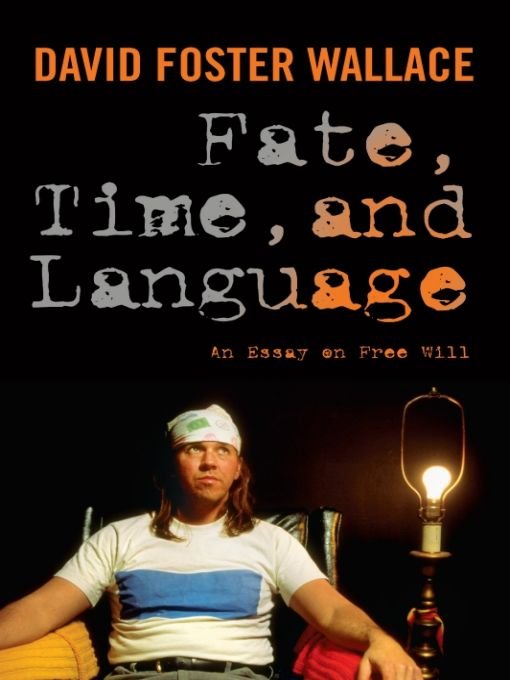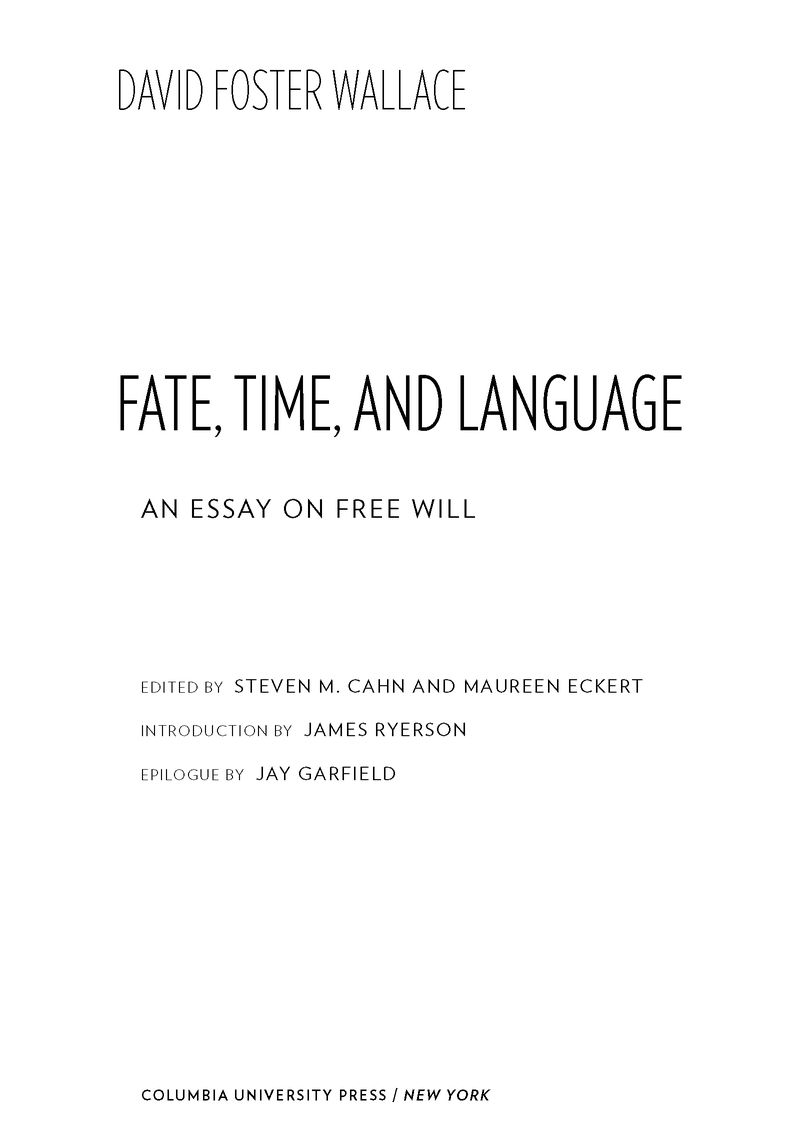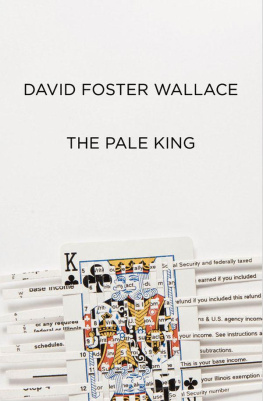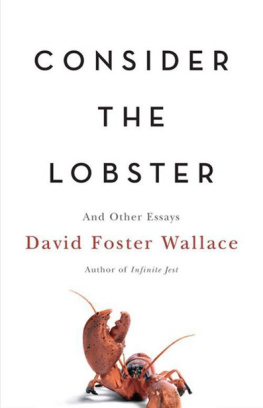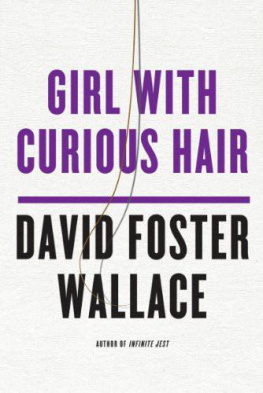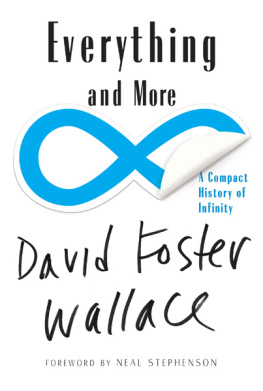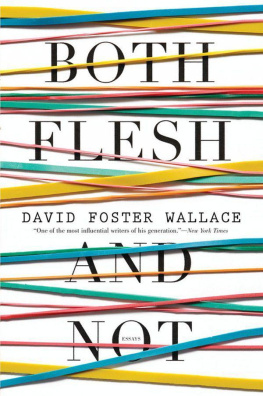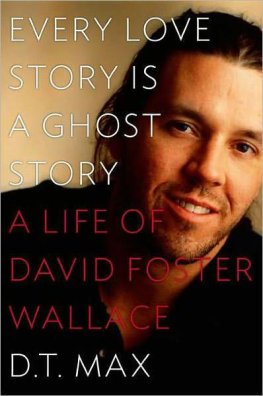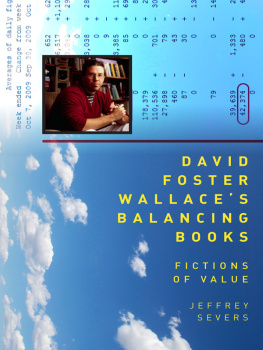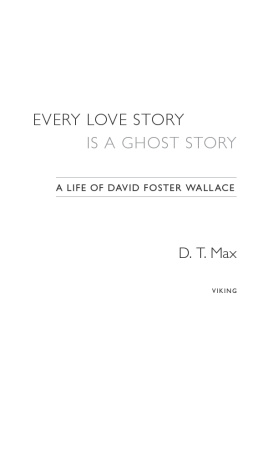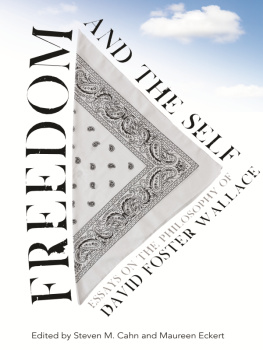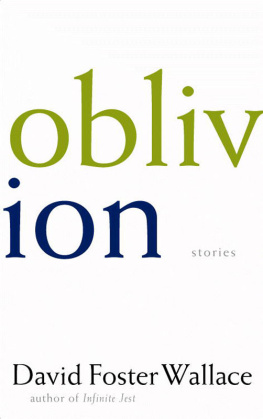Table of Contents
PREFACE
STEVEN M. CAHN AND MAUREEN ECKERT
IN 1985 David Foster Wallace, then a senior at Amherst College, submitted an honors thesis to his schools Department of Philosophy. This extended essay explored a puzzle about free will that was deeply rooted in the history of philosophy and had been revitalized in 1962 with the publication of a provocative piece titled Fatalism by the well-known metaphysician Richard Taylor. For several years after its appearance, this article generated much discussion in the leading philosophical journals of both Britain and the United States. In Wallaces thesis he revisited that debate and sought to resolve the crucial issues it raised about fate, time, and language.
Wallaces thesis was on file in the philosophy department library at his college, but the existence of the work was not widely known. In 2008 Maureen Eckert learned from Mark Costello of the significance the thesis had for Wallace and his desire that it be published. She passed on this information to Steven M. Cahn, who in turn contacted Wendy Lochner, senior philosophy editor at Columbia University Press. Permission to publish was obtained from the estate of David Foster Wallace, and this volume was then brought to fruition.
Every effort has been made to put Wallaces thesis into perspective. At the request of the Press, James Ryerson provided an introduction, exploring the connections between Wallaces literary and philosophical interests. Then, after a short explanatory note by Steven M. Cahn, Taylors controversial article is reprinted unabridged as are the most significant contributions to the debate it inspired. Following Maureen Eckerts explanation of the important developments in philosophy between the late 1960s and the early 1980s that influenced Wallaces approach, his thesis is presented, exactly as he submitted it. Finally, at the invitation of the Press, Jay Garfield prepared a brief epilogue, recounting his experience as Wallaces teacher. The appendix contains a crucial paper of Taylors, often overlooked by those who seek to understand the controversy. Written five years before Fatalism, it offers a clear presentation of Taylors own metaphysical position: what he believed and why he believed it, its roots in the metaphysics of Aristotle, and its consequences for understanding the nature of time, logic, and divine omniscience.
Wallaces thesis does not make for easy reading. But the issues with which he wrestles are fascinating and the consequences far-ranging. In this case, as in much of philosophical inquiry, a concern for technical detail may be needed to make progress in resolving questions that matter most.
We are grateful to the estate of David Foster Wallace for agreeing to have this work published. We appreciate the support and guidance of our editor, Wendy Lochner, as well as the valuable help provided by assistant editor Christine Mortlock and manuscript editor Michael Haskell. Our thanks also to James Ryerson and Jay Garfield for their insightful contributions. Without the crucial role played by Mark Costello the project would not have been undertaken.
We wish to acknowledge the assistance throughout production of the staff at Columbia University Press. And we want to take this opportunity to thank Matt Cravatta, who found for us a photograph of Richard Taylor.
Finally, we would like to express our appreciation for the opportunity we have been given to bring to a wider audience this work of David Foster Wallace. We trust that his arguments will be taken seriously and subjected to careful scrutiny. Doing so, as he well knew, is how one pays tribute to a philosopher of consequence.
INTRODUCTION
A HEAD THAT THROBBED HEARTLIKE THE PHILOSOPHICAL MIND OF DAVID FOSTER WALLACE
JAMES RYERSON
WITH THE death of David Foster Wallace, the author of Infinite Jest, who took his own life on September 12, 2008, the world of contemporary American fiction lost its most intellectually ambitious writer. Like his forebears Thomas Pynchon and William Gaddis, Wallace wrote big, brainy novels that were encyclopedically packed with information and animated by arcane ideas. In nonfiction essays, he tackled a daunting range of highbrow topics, including lexicography, poststructuralist literary theory, and the science, ethics, and epistemology of invertebrate pain. He wrote a book, Everything and More, on the history and philosophy of the mathematics of infinity. Even his signature stylistic devicethe extensive use of footnotes and endnoteswas a kind of scholarly homage.
But Wallace was also wary of ideas. He was perpetually on guard against the ways that abstract thinking (especially thinking about your own thinking) can draw you away from something more genuine and real. To read his acutely self-conscious, dialectically fevered writing was often to witness the agony of cognition: how the twists and turns of thought can hold out the promise of true understanding yet also become a danger to it. Wallace was especially concerned that certain theoretical paradigmsthe cerebral aestheticism of modernism, the clever gimmickry of postmodernismtoo easily discarded what he once called the very old traditional human verities that have to do with spirituality and emotion and community. He called for a more forthright, engaged treatment of these basic truths. Yet he himself attended to them with fractured, often-esoteric methods. It was a defining tension: the very conceptual tools with which he pursued lifes most desperate questions threatened to keep him forever at a distance from the connections he struggled to make.
Given Wallaces considerable intellectual gifts and large cult following, it was a surprise to learn, after his death, that his only formal, systematic contribution to the world of ideas had never been published and was almost completely unknown. This was his undergraduate honors thesis in philosophy, Richard Taylors Fatalism and the Semantics of Physical Modality, which he submitted for a degree at Amherst College in 1985. Its obscurity is easy to appreciate. A highly specialized, novella-length work of logic, semantics, and metaphysics, it is not for the philosophically faint of heart. Brace yourself for a sample sentence: Let (a physical possibility structure) be a set of distinct but intersecting paths ji-jn, each of which is a set of functions, Ls, on ordered pairs t, w (time, world-situation), such that for any Ln, Lm in some ji, LnRLm, where R is a primitive accessibility relation corresponding to physical possibility understood in terms of diachronic physical compatibility. There are reasons that hes better known for an essay about a cruise ship.
For all its seeming inscrutability, though, the thesis is lucidly argued andwith some patience and industry on the part of the lay readerultimately accessible, which is welcome news for those looking to deepen their understanding of Wallace. The paper offers a point of entry into an overlooked aspect of his intellectual life: a serious early engagement with philosophy that would play a lasting role in his work and thought, including his ideas about the purpose and possibilities of fiction. In addition, the thesis itself marks an important phase in his development as a thinker. Once its goals and ambitions become clear, it casts a revealing light on the initial stages of his struggle to use the powers of his formidable mind for the higher good: to protect against the seductions of the intellect and to find solid ground for his most urgent and heartfelt convictions.

